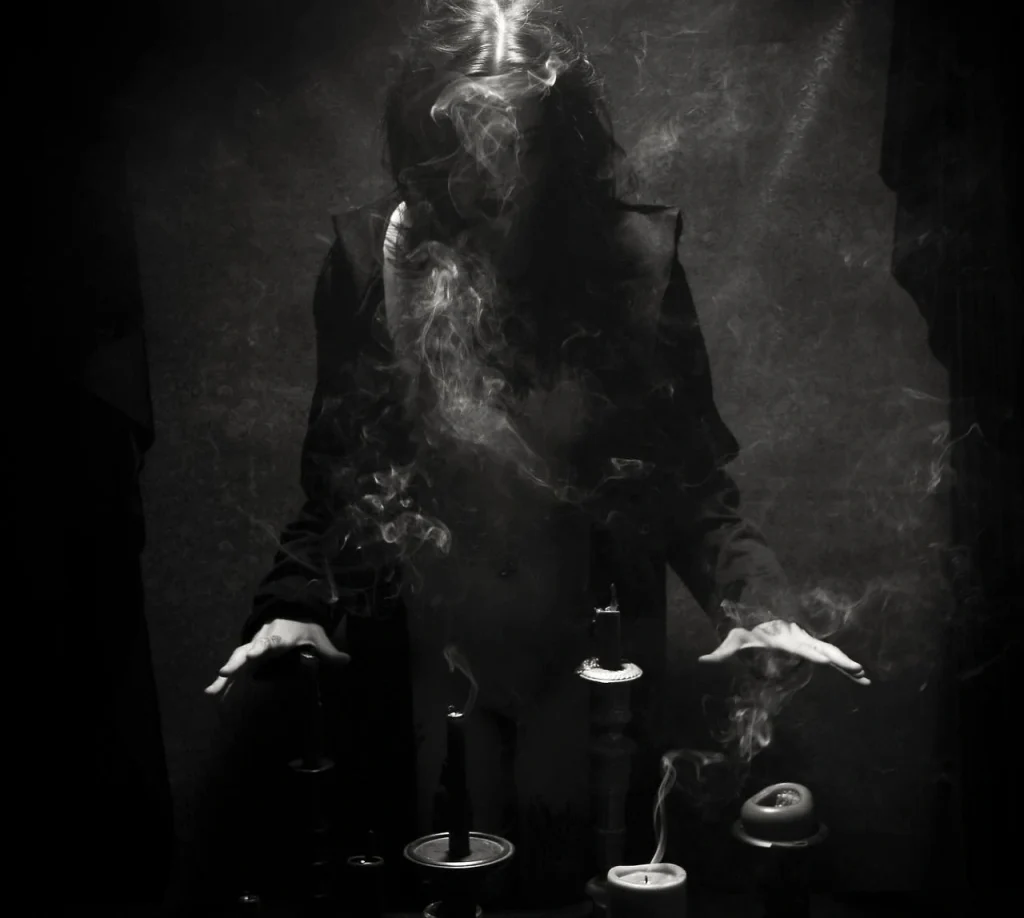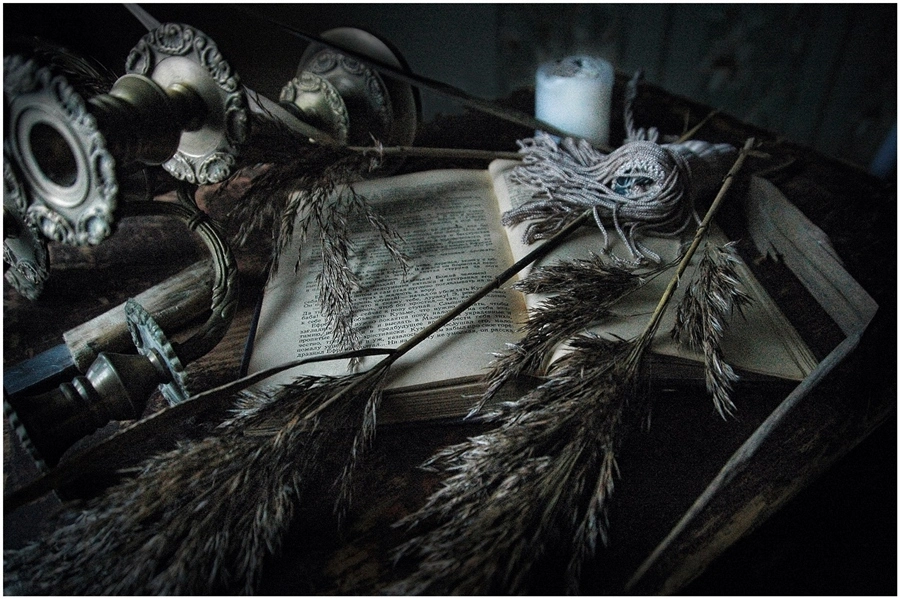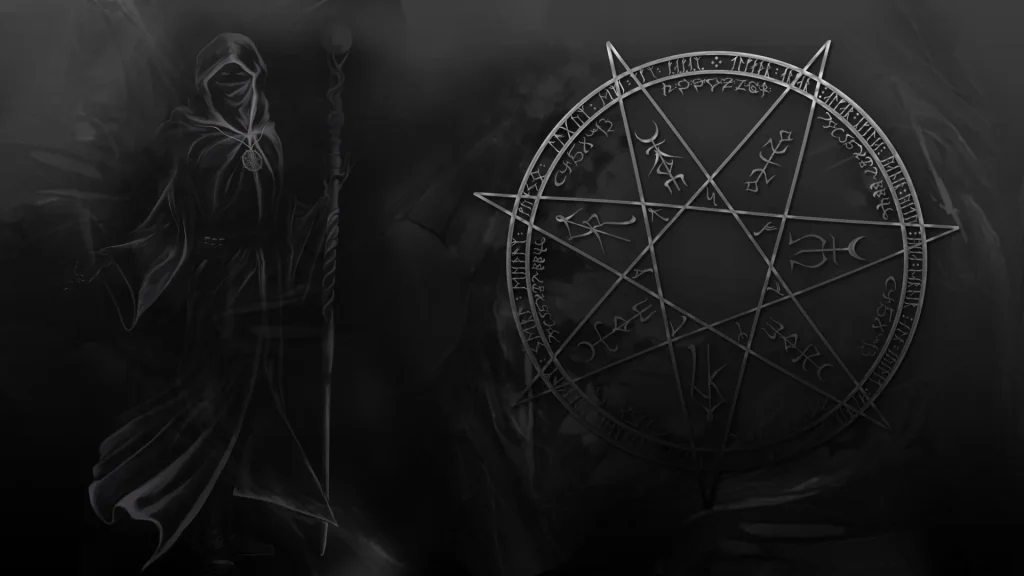Family curses have been a prominent theme in folklore, mythology, and literature for centuries. Passed down through generations, these mysterious and often sinister tales have captivated the human imagination, inspiring countless stories, movies, and cultural beliefs. But what exactly are family curses, and do they hold any truth in the realm of reality? In this article, we will delve into the intriguing world of family curses, exploring their origins, impact on families, and the psychological aspects that might explain their persistence in our collective consciousness.
Understanding Family Curses
Family curses are a concept rooted in folklore, mythology, and cultural beliefs. They refer to a supposed supernatural phenomenon where a family or its members are believed to be under a curse or hex, often as a result of a past misdeed, betrayal, or some form of transgression. These curses are thought to bring misfortune, illness, or other forms of suffering to the individuals within the family, passing down from one generation to another.
The nature of family curses can vary widely across different cultures and belief systems. In some traditions, it’s believed that curses can be cast by enemies, witches, or malevolent spirits with the intention of causing harm to an individual or their entire family. The effects of a family curse might include financial difficulties, failed relationships, chronic illnesses, or any other form of persistent misfortune.
While the belief in family curses is prevalent in many cultures, it’s important to note that there is no scientific evidence to support the existence of supernatural curses. Many scholars and skeptics view these beliefs as products of superstition, psychological factors, or metaphorical representations of generational struggles and traumas.
In modern contexts, family curses are often explored in literature, movies, and other forms of storytelling, where they serve as a powerful plot device to create tension and drama. Regardless of their origins or validity, family curses remain a captivating and enduring aspect of human folklore and cultural heritage.


you might be interested to read: The Curse of Shadows and Thorns
Historical Context of Family Curses
The origins of the concept of family curses are deeply rooted in the folklore and mythology of various cultures around the world. While the specifics vary, there are common themes and patterns that emerge, highlighting the universality of human fears, beliefs, and desires to explain the unexplainable.
- Ancient Civilizations: In ancient civilizations such as Egypt, Greece, and Rome, curses were often invoked as a means of seeking retribution or justice. If someone felt wronged or betrayed, they might call upon the gods to curse the individual and their entire lineage. These curses were believed to have tangible, lasting effects, often causing illness, misfortune, or even death to the cursed family members.”The Curse Mark of Death“.
- Medieval Europe: During the Middle Ages in Europe, belief in curses was intertwined with the fear of witchcraft and the supernatural. Families suffering from unexplainable tragedies, such as diseases or crop failures, often sought solace in the idea of curses. It was widely believed that witches or evil spirits could cast spells on families, leading to generations of misery.
- Folklore and Mythology: Throughout history, folklore and mythology have played a significant role in shaping the concept of family curses. Stories of vengeful spirits, cursed artifacts, and forbidden pacts have been passed down through generations. For example, the concept of the “curse of the pharaohs” in Egypt suggests that those who disturb the resting place of a pharaoh will be cursed with bad luck or death.
- Religious Beliefs: Many religious texts and traditions mention curses as a form of divine punishment. In the Bible, for instance, there are stories of generational curses, where the sins of the ancestors are believed to affect their descendants. This idea has permeated into various religious beliefs, leading to the fear of generational repercussions for one’s actions.
- Cultural Variations: Different cultures have unique variations of family curse beliefs. In some Asian cultures, for example, the concept of “ancestor worship” is prevalent. Families believe that if ancestors are not properly respected or if their spirits are disturbed, they can inflict curses on the living family members. Similarly, in African and Caribbean cultures, there are deep-rooted beliefs in curses and witchcraft, often involving rituals to ward off or remove curses.
- Modern Interpretations: In contemporary times, family curses have found their way into popular culture through books, movies, and television shows. These modern interpretations often blend ancient folklore with creative storytelling, further cementing the idea of family curses in the public imagination.
The origins of family curses are a complex tapestry woven from the threads of ancient beliefs, cultural traditions, religious teachings, and human imagination. While these beliefs have evolved over centuries, the underlying fear of the unknown and the desire to explain life’s hardships continue to fuel the enduring fascination with the concept of family curses in our global society.
Read More : Am I Cursed?
Cultural Perspectives
Family curses, a concept deeply ingrained in cultural narratives around the world, showcase the diversity of human beliefs and interpretations. Here’s a closer look at how different cultures perceive and understand the phenomenon of family curses:
1. African and African Diaspora Cultures: In many African cultures, family curses are believed to be a consequence of displeased ancestors or spirits. Rituals and ceremonies are performed to appease these spirits and break the curse. In African diaspora traditions such as Voodoo and Hoodoo, curses can be placed intentionally, believed to have potent effects on the targeted family.
2. Asian Cultures: Asian cultures, including those in India and China, often associate family curses with karma, the concept that one’s actions in this or past lives influence their fate. Breaking a curse might involve karmic cleansing rituals, seeking forgiveness, or balancing past wrongs through good deeds.
3. Middle Eastern and Mediterranean Cultures: In Middle Eastern cultures, the concept of the evil eye is prevalent, where a curse can be cast simply through jealousy or envy. Talismans and amulets are used to ward off such curses. In Mediterranean traditions, curses are often linked to the power of spoken words, with incantations believed to bring harm to the cursed family.
4. Native American Cultures: Many Native American tribes have their interpretations of curses and hexes. In some traditions, curses are believed to result from violating spiritual or natural laws. Rituals involving smudging, cleansing, and seeking guidance from spiritual leaders are employed to lift these curses.
5. European and Western Cultures: In European folklore, witches were often blamed for casting curses upon families and their livestock. Protective charms and rituals, such as hanging herbs or creating hex-breaking spells, were employed to counteract these curses. In modern Western culture, the idea of curses is often explored in popular media, perpetuating both fear and fascination.
6. Latin American Cultures: In Latin American cultures, the belief in curses, hexes, and brujería (witchcraft) is prevalent. Curses might be perceived as a consequence of unsettled debts, romantic rivalries, or vendettas. Rituals involving herbs, candles, and prayers to saints are used to counteract curses and bring protection to the family.
7. Pacific Island Cultures: In many Pacific Island cultures, family curses might be attributed to angry spirits or deities. Rituals involving offerings, chants, and dances are performed to pacify these spirits and lift the curse. Curses might also be perceived as consequences of violating taboos within the community.
Cultural perspectives of family curses vary widely, reflecting the rich tapestry of human beliefs and traditions. Regardless of the specific cultural context, these beliefs often emphasize the importance of spiritual balance, respect for ancestors, and the use of rituals to protect families from perceived supernatural harm. While these beliefs might not align with modern scientific understanding, they continue to shape the cultural identities and practices of diverse communities around the world.
How Can One Identify if They are Affected by a Family Curse?
It’s important to approach the concept of family curses with critical thinking and skepticism, as there is no scientific evidence to support their existence. Many issues attributed to family curses can often be explained by psychological, social, economic, or environmental factors. However, if you’re concerned about negative patterns or challenges within your family, it’s crucial to focus on understanding these issues in a practical and evidence-based manner. Here are signs that a family might be facing challenges, without necessarily indicating a curse:
- Repeating Negative Patterns: Families facing challenges often witness repeating negative patterns, such as addiction, abusive behaviors, or financial struggles, across generations. While this doesn’t imply a curse, it might suggest the presence of unresolved issues within the family.
- Chronic Illnesses or Health Problems: Families might experience a higher incidence of certain health conditions due to genetic predispositions or environmental factors. This isn’t indicative of a curse but might require medical attention and lifestyle changes.
- Financial Struggles: Persistent financial difficulties can affect multiple generations within a family. These challenges can arise from various factors such as lack of education, limited job opportunities, or economic downturns.
- Relationship Problems: Frequent divorce, domestic violence, or strained relationships within a family might indicate unresolved emotional issues or poor communication skills. Family counseling can help address these problems.
- Lack of Education and Opportunities: Limited access to education and opportunities can create a cycle of poverty within a family. Breaking this cycle often requires external support, scholarships, or community programs.
- Mental Health Issues: Mental health conditions, such as depression or anxiety disorders, can affect individuals within families. These conditions often have a complex interplay of genetic and environmental factors and can be managed with therapy and medication.
- History of Trauma: Families with a history of trauma, such as war, displacement, or abuse, might struggle with the psychological aftermath. Trauma-informed therapy can be beneficial in these cases.
- Communication Breakdown: Lack of healthy communication can lead to misunderstandings, conflicts, and emotional distance within families. Open and honest communication can significantly improve family dynamics.
- Lack of Support Systems: Families facing challenges might lack adequate support systems, making it difficult to cope with life stressors. Community resources, support groups, and counseling services can provide essential support.
- Unresolved Grief or Loss: Grief and loss can have long-lasting effects on families. Therapy or support groups can assist in navigating the grieving process and healing as a family.
In summary, while challenges within families are real and can be deeply impactful, attributing them to a curse might obscure the underlying issues that need to be addressed. Seeking professional help, fostering healthy communication, and accessing community resources are practical approaches to overcoming family challenges and breaking negative cycles.
Read More : The Mystery of the Cursed Cat
How to Break Family Curses?
It’s important to approach rituals and spells related to family curses with caution and respect for your beliefs and the beliefs of others for breaking family curses. Keep in mind that these practices are rooted in spirituality, folklore, and cultural traditions and may not have scientific validity. Here are a few rituals and spells from various cultural backgrounds that people have used historically. Remember, these rituals should not replace professional help or medical advice. Always consult a mental health professional or a counselor for serious family issues.
Cleansing Rituals:
Cleansing rituals are common in many cultures. They often involve smudging with herbs like sage, palo santo, or sweetgrass. The smoke is believed to purify the space and the people within it. To perform a cleansing ritual, light the herb and let the smoke waft around your family members while setting an intention to release negative energies.
Salt Ritual:
In various cultures, salt is considered a purifier. Sprinkle salt at the entrances of your home, visualizing it creating a protective barrier. Some believe that this ritual prevents negative energy from entering the home.
Candle Magic:
Candle rituals are prevalent in many belief systems. Choose a candle color that represents healing (often blue or white) and carve witch symbols or words representing breaking the curse. Light the candle with the intention of breaking the family curse and creating a harmonious environment.
Prayer and Meditation for breaking curses:
Engage in prayer or meditation practices that resonate with your beliefs. Focus on positive intentions, forgiveness, and breaking generational patterns. Regular meditation or prayer can help shift your mindset and promote inner peace.
Ancestral Offerings:
In some cultures, offering prayers, food, or other items to ancestors is believed to bring their blessings and assistance. Create an ancestral altar with items your ancestors enjoyed, along with photos or magic symbols representing your family. Offer your prayers and intentions, seeking guidance and protection.
Visualization and Manifestation:
Practice visualization techniques where you mentally picture your family breaking free from negative patterns. Imagine your family members happy, healthy, and harmonious. Visualization, coupled with positive affirmations, can influence your subconscious mind positively.
Herbal Spells:
Certain herbs, like basil, rosemary, or vervain, are believed to have protective and cleansing properties. Create sachets or herbal bundles with these witch herbs and place them in different areas of your home. Some people carry these sachets with them for personal protection.
Moon Magic:
In some belief systems, performing rituals during specific moon phases is considered powerful. Full moon rituals are often associated with releasing negativity. During a full moon, perform a ritual where you write down the family patterns you wish to break and burn the paper, symbolizing releasing these patterns.
Consulting Spiritual Leaders:
If you’re deeply rooted in a specific spiritual tradition, consult a knowledgeable spiritual leader or practitioner. They can provide personalized rituals and guidance based on your beliefs and the specific nature of the perceived curse.
Remember, these rituals are symbolic in nature and can provide a sense of empowerment and focus. However, they should not replace professional help when needed. For complex family issues or emotional challenges, seeking guidance from mental health professionals, counselors, or therapists is essential.


Important Resources to Learn More About Family Curses
Exploring the concept of family curses, whether from a cultural, historical, psychological, or spiritual perspective, can be a fascinating journey. Here are some resources, including books, websites, and academic articles, where you can learn more about family curses and related topics:
Books:
- “Family Secrets: The Path from Shame to Healing” by John Bradshaw – This book explores the impact of family secrets, including generational patterns and how they affect our lives.
- “Generational Patterns of Trauma in Relationship: Clinical Implications of Ancestor Imprints” by Vamik D. Volkan – This book delves into the psychological aspects of generational patterns and trauma within families.
- “Breaking Generational Curses: Overcoming the Legacy of Sin in Your Family” by Marilyn Hickey – This book offers a religious perspective on breaking generational curses and provides insights from a Christian viewpoint.
- “Ancestral Medicine: Rituals for Personal and Family Healing” by Daniel Foor – Focused on ancestral healing, this witchcraft book explores rituals and practices to address ancestral wounds and patterns.
Websites and Online Articles:
- Psychology Today (psychologytoday.com) – Psychology Today’s website offers numerous articles on family dynamics, generational patterns, and related psychological topics.
- Academic Journals (such as JSTOR, Google Scholar) – Search for academic articles on topics like “generational trauma,” “family patterns,” and “ancestral healing” to find scholarly perspectives on family curses and related themes.
- BBC Future (bbc.com/future) – BBC Future often publishes articles on psychological phenomena, family dynamics, and cultural beliefs, providing a balanced and informative perspective.
Online Forums and Communities:
- Quora (quora.com) – Quora hosts discussions on various topics, including family curses and generational patterns. You can find insights from experts and enthusiasts alike.
Documentaries and Podcasts:
- Podcasts like “The Family Tree” – Podcasts often delve into psychological and familial themes. “The Family Tree” is an audio drama that explores family dynamics and relationships.
- Documentaries on Cultural Beliefs – Documentaries on platforms like Netflix and Amazon Prime often explore cultural beliefs, rituals, and family dynamics around the world, providing valuable insights.
Remember to approach the topic with critical thinking, considering diverse perspectives, and balancing traditional beliefs with contemporary knowledge. Reading academic papers and wiccan books can provide a well-rounded understanding of the psychological and cultural aspects of family curses.
How to Know if You’re a Victim of Witchcraft: Best 8 Ways to Recognize the Signs
Types of Family Curses
Here are some common types of family curses as they are often portrayed in literature and folklore:
- Generational Curse:
- This is a curse that is believed to affect multiple generations within a family. It is often thought to result from a wrongdoing or a betrayal committed by an ancestor. The effects of a generational curse may manifest as a pattern of misfortune, illness, or tragedy that continues to afflict descendants.
- Wealth or Prosperity Curse:
- Some curses are believed to target a family’s financial well-being. These curses may be associated with the loss of wealth, business failures, or poverty that seems to persist across generations.
- Health or Sickness Curse:
- This type of curse is thought to bring chronic illnesses, disabilities, or mental health issues to members of a family. It may be perceived as a punishment for past transgressions or as the result of malevolent forces.
- Relationship or Marriage Curse:
- Family curses related to relationships can lead to a pattern of failed marriages, divorces, or dysfunctional family dynamics. These curses are often linked to ancestral conflicts or betrayals.
- Infertility or Childlessness Curse:
- Some families believe they are cursed with infertility or the inability to have children. This curse can cause emotional distress and may be associated with feelings of isolation and despair.
- Hexes and Spells:
- Curses may involve the use of hexes, spells, or rituals by individuals seeking to harm a family or its members. These curses can be placed on specific individuals or the entire family.
- Supernatural Haunting:
- Some family curses involve paranormal phenomena, such as haunted houses or malevolent spirits that are believed to torment the family. These curses are often depicted in horror stories and movies.
- Tragic Events Curse:
- This type of curse is associated with a pattern of tragic events, accidents, or premature deaths within a family. It is often seen as a dark cloud that hangs over the family’s history.
- Inherited Guilt or Shame:
- A curse of inherited guilt or shame may involve feelings of guilt or remorse that are passed down through generations due to a perceived ancestral wrongdoing or sin.


Final Thouths
Family curses, though captivating and mysterious, are ultimately products of human imagination and cultural storytelling. While they may serve as cautionary tales or metaphors for the struggles faced by families, it’s crucial to approach such concepts with critical thinking and empathy. By understanding the psychological and cultural underpinnings of these narratives, we can appreciate the rich tapestry of human beliefs while focusing on evidence-based solutions to the real challenges faced by families worldwide. In doing so, we empower ourselves to break free from the shackles of superstition and work towards creating a better, more compassionate world for all.


Pingback: Unraveling the Mystery of Family Curses: Fact o...